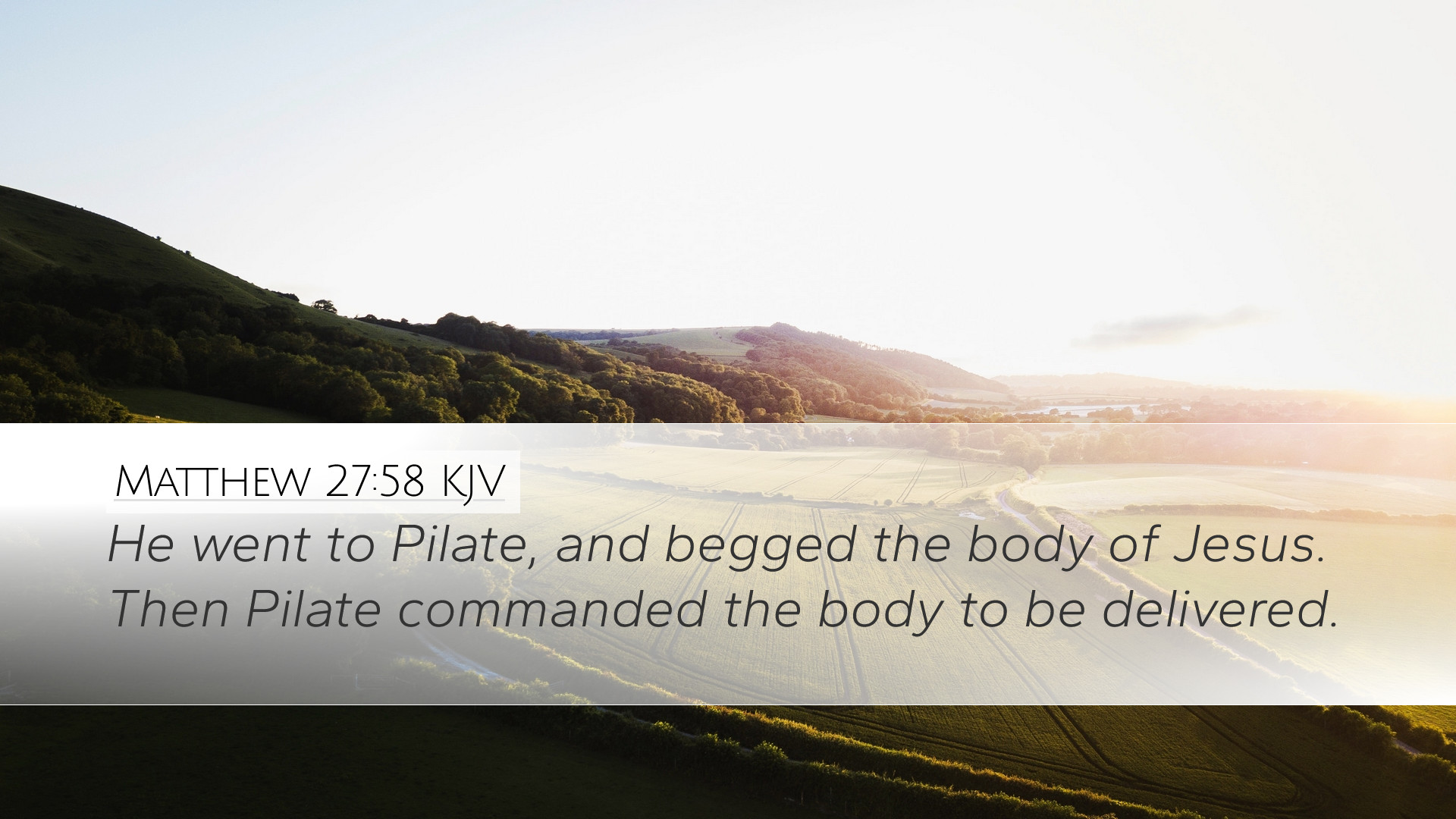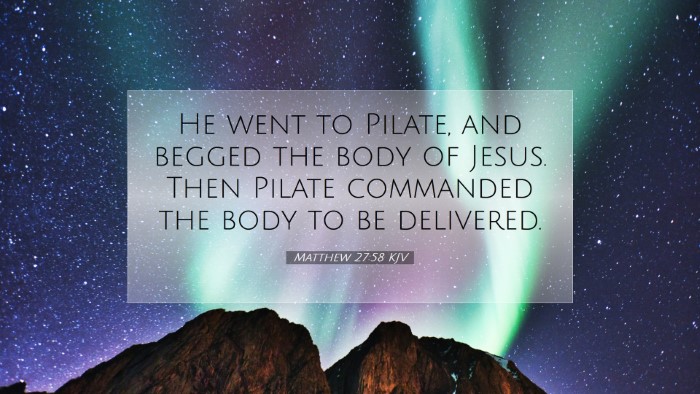Commentary on Matthew 27:58
Matthew 27:58 states, "He went to Pilate and asked for the body of Jesus. Then Pilate commanded the body to be given to him." This passage presents significant insights into the events following the crucifixion and the actions of Joseph of Arimathea. Below, we summarize insights from various public domain commentaries.
Context of the Verse
This verse takes place during a critical moment in the Passion narrative. After Jesus' death on the cross, there is a transition from His suffering to the handling of His body, an act already steeped in prophetic significance.
Joseph of Arimathea
Joseph of Arimathea plays a pivotal role in this account. According to Matthew Henry’s commentary, Joseph is portrayed as a man of means and influence, who, despite being a member of the Sanhedrin, had secretly become a disciple of Jesus. His request to Pilate to take Jesus' body showcases not only his courage but also his devotion.
Character Attributes
- Courage: He boldly approaches Pilate, who had sentenced Jesus to death. This was a dangerous act, considering that the other members of the Sanhedrin condemned Jesus.
- Compassion: His desire to give Jesus a proper burial demonstrates a profound respect for His sacrifice and recognition of Jesus' innocence.
- Faith: Joseph's actions suggest a belief in Jesus’ teachings and messianic identity, aligning with Albert Barnes' observations on the nature of faith in the face of societal pressure.
Engagement with Pilate
In this passage, Joseph requests the body of Jesus from Pilate. Adam Clarke points out that this confrontation is significant as it reveals the power dynamics at play. Pilate had the final authority over Jesus' body after His death.
Pilate’s Role
- Authority and Ambivalence: Pilate’s willingness to allow Joseph to take the body indicates a level of ambivalence towards the execution he ordered.
- Fulfillment of Prophecy: The act of providing Jesus a proper burial fulfills the scriptures, particularly Isaiah 53:9, which speaks of the Messiah being assigned a grave with the wicked, yet ending with the rich.
Theological Implications
This moment is marked not only by the physical act of burying Jesus but also carries significant theological weight. Matthew Henry emphasizes this event as a testament to God's providence. It is a crucial part of the paschal mystery: Jesus’ death and subsequent burial pave the way for His resurrection.
Symbolic Actions
- Burial: The manner of Jesus' burial is equally important, highlighting the dignity afforded to Him even in death.
- Transition: Joseph’s action signifies a transition from death to life, mirroring the believers’ hope in resurrection in Christ.
Conclusion
The act of Joseph of Arimathea requesting Jesus' body serves as a profound narrative anchor in the unfolding drama of the Passion. It invites pastors, theologians, and students alike to reflect on the nature of discipleship, the courage to stand for truth, and the rich theological significance of Jesus’ burial.
Ultimately, Matthew 27:58 calls for a deeper examination of the nature of faith and the unexpected ways God’s plan unfolds through seemingly mundane human interactions.


